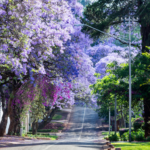The January Interest hike pressured the South African Monetary Policy Committee to make a decision to help stimulate growth in the economy. The South African Reserve Bank Governor previously announced that the bank would make an increment of 25 basis points to 7% per year from March 2016.
The CEO of The Pam Golding Property Group, Dr Andrew Golding had pinned his hopes on the repo rate remaining stable. This was after the rand had gained some strength taking some pressure off the monetary policy.
On the global state, the Federal Reserve Bank is not hiking rates assertively as expected; the European Central Bank continues to ease the monetary policy.
A property agent comments –
“The country’s on-going challenging economic pressures and fundamentals are allowing growth in the housing market. Regional and area-specific demand is more dependent on a range of factors including convenient location, lifestyle, infrastructure as well as long term investment potential.
We are currently in an upward repo rate cycle. Interest rates are still not near the highs of 2008 and there are not expected to increase significantly. Housing activity in South Africa has slowed. Demand for homes remains strong and the market still retains its resilience.”
This is noted by the market confidence shown by experienced developers, who still bring new stock to the market place areas where uptake is brisk, notwithstanding recent weakness in the rand and the volatility of the stock market.
The property agent noted, ‘’from October 2015 to date, the experience of the top end of the residential property market – as defined by properties greater than R10 million and up to R100 million as there was previously an increase in sales activity by as much as 30 percent in recent months. This market has been brisk in the Western Cape, Boland and Overberg, North Coast of KwaZulu-Natal and the Garden Route.”
The luxury market that was quieter last year as picked up, in the Western Cape Town Metro, with prime properties on the iconic Atlantic Seaboard at top-end prices, with an apartment on the beach in Clifton selling for R29 million for 288sqm which is equivalent to just over R100 000 per sqm.
The increase is due to trends including: a migration of high net worth buyers from north of the country, from Gauteng to the Western Cape, and other coastal areas. The investment market had an overall increase in foreign buyers both from Africa and the rest of the world.
Most African investors purchase property in South Africa because they are seeking either investment properties or personal residences, while some individuals are purchasing luxury seaside residential properties or other ‘lifestyle properties’ as an excellent means to diversifying property portfolios and securing long-term investment assets.




